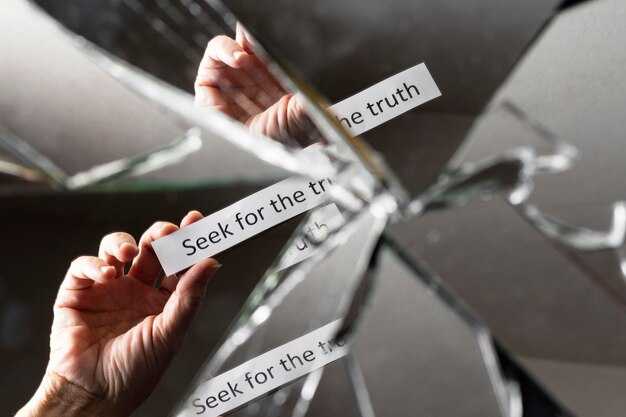If you ended a relationship with someone you truly cared about and now find yourself doubting that choice, wondering whether another chance is deserved, this is for you. Time and distance can blur the truth, so try to answer these questions honestly and with as little emotion as possible: were you made to feel important and tended to consistently, not perfectly but regularly? Did you receive respect? Were your limits honored or repeatedly ignored? Did you ever feel pressured or coerced in intimate moments? When they hurt you, even by accident, did they own it and apologize or shift the blame onto you with lines like “you’re making a big deal out of nothing,” “you’re too sensitive,” or “I’m always the one being vilified — nothing I do is ever enough”? Did your emotions and viewpoints matter, or were they dismissed and invalidated? Did the relationship add genuine value and happiness to your life, or did you find yourself constantly contorting to accommodate someone who never reciprocated? It’s important to be truthful about how you really felt during that relationship because many people rationalize staying — saying things like “they’re a good person deep down,” “they’ve been through trauma,” “they needed me,” or “they were improving with their drinking, yelling, or anger.” Those explanations don’t erase the reality of how you were treated. If the question is whether to give them another shot, the answer is no. Jillian Tareki describes walking away from a person you love who cannot meet your needs as one of the bravest choices you can make. The fact that the relationship ended is proof they weren’t meeting what you needed; that doesn’t necessarily make them a bad person, but it can make them the wrong partner for you. You shouldn’t have to prove your worth to get prioritized, nor beg someone to love you in the ways that make you feel seen. Allow yourself to mourn this loss — feeling sorrow is natural, even after a brief relationship. Permit the full spectrum of emotions that come with this process, but remember grief doesn’t automatically mean the breakup was a mistake. Removing yourself from a union that wasn’t healthy or right took strength and emotional maturity, and that deserves recognition. Often what’s missed isn’t the actual person but the potential version of them — the idea of someone who could have prioritized you and made you feel safe. Glimpses of that possibility may have appeared, but they were inconsistent; don’t conflate hope with reality. They showed, repeatedly, the level of care and presence they were willing and able to give — and the neglect they were comfortable with. When someone reveals their true self, believe it. Your intuition knew you deserved better; you weren’t overreacting — you were standing up for your needs. Trust that decision and find the strength to move forward. It’s normal to miss them, but resist reaching out to comfort them or to reopen old wounds — they cannot be your priority anymore. Take the time needed to heal, and if they try to guilt you or pressure you into staying “for clarity” or to keep them comfortable, that’s further proof the dynamic was unhealthy and that stepping away was necessary. Stay strong, stay safe, and remember you deserve respect, care, and the chance to recover and thrive.

Practical steps and considerations to help you decide and heal:
- Give yourself time and structure before making any contact: set a no-contact period (even a few weeks) to allow emotions to settle and to see the relationship more clearly.
- Ask for concrete evidence of change, not promises: real change is measurable, consistent, and occurs across situations, not just in isolated moments or when it’s convenient for them.
- Require accountability: if they refuse to acknowledge harm, minimize it, or shift blame, reconciliation isn’t safe. Genuine accountability includes understanding what went wrong, taking responsibility, and outlining steps to change.
- Set clear boundaries and keep them: decide what you will and won’t accept (communication style, respect for limits, honesty) and be ready to enforce those boundaries by stepping away if they’re violated.
- Consider professional help cautiously: couple therapy can help only if both partners are genuinely committed to change and the therapist is licensed. If there was abuse, seek individual therapy and safety planning first rather than couple therapy.
- Watch behavior under stress: true change shows up in how someone behaves when things get hard (during stress, disappointment, or triggers) — not only when they’re trying to win you back.
- Use your support network: talk with trusted friends, family, or a therapist who can offer perspective and hold you accountable to your needs and boundaries.
- Protect your safety and well-being: if there were any signs of coercion, manipulation, physical violence, stalking, or emotional abuse, prioritize your safety and consult local resources or hotlines before considering contact.
How to evaluate “they’ve changed” claims:

- Look for sustained, independent evidence: reduced substance use, consistent attendance in therapy, tangible changes in behavior reported by mutual acquaintances, and improved emotional regulation over months.
- Ask for specifics and a plan: vague apologies are not enough. A meaningful plan includes what they will do differently, how they’ll handle setbacks, and how they’ll demonstrate respect for your boundaries.
- Insist on transparency and willingness to accept consequences: if they react defensively, gaslight, or try to rush you into forgiveness, they are not prepared to put your needs first.
Self-care and recovery tips:
- Journal feelings and patterns you noticed in the relationship — this helps clarify why you left and prevents idealizing the past.
- Create new routines and small goals to rebuild a sense of agency and momentum.
- Stay connected to people who validate and support you; isolation makes it harder to maintain perspective.
- Allow yourself to grieve and also to celebrate your decision to leave something that was not meeting your needs.
- If you’re struggling with intrusive thoughts or difficulty functioning, seek a mental health professional — therapy can accelerate recovery and help you protect future relationship health.
When reconciliation might be appropriate (rare, and only under strict conditions): both people take responsibility; there is transparent, sustained evidence of change; clear boundaries and consequences are agreed upon and honored; and you feel safer, respected, and more seen — not pressured — as time goes on. If those conditions aren’t present, or if you find yourself the person continually adapting while their behavior stays the same, protecting yourself by staying apart is not a failure — it’s self-preservation.













